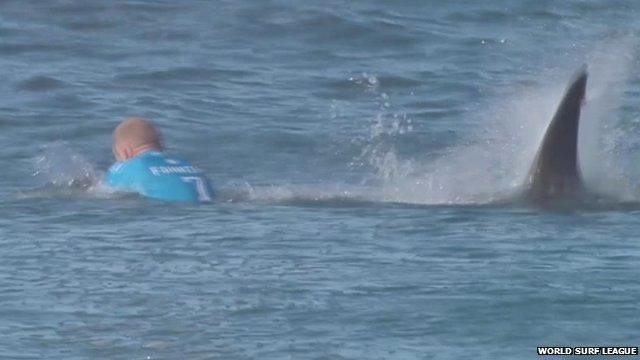Shark attack: Is it safe to go back in South Africa's waters?
- Published
Surfer Mick Fanning: "I punched the shark in the back"
South Africa's coastline stretches over thousands of kilometres and is popular with beach-goers and surfers almost all year round.
But more and more reports of shark attacks are making it into the news, begging the question: "Are South Africa's beaches safe?"
The footage of Australian surfer Mick Fanning being attacked by a shark, screened live at the weekend, has caused both intrigue and some panic.
Mr Fanning, a three-time world champion, was competing in the final of the J-Bay Open, an international surfing tournament in Jeffreys Bay in the Eastern Cape, when he escaped an attack by two identified sharks.
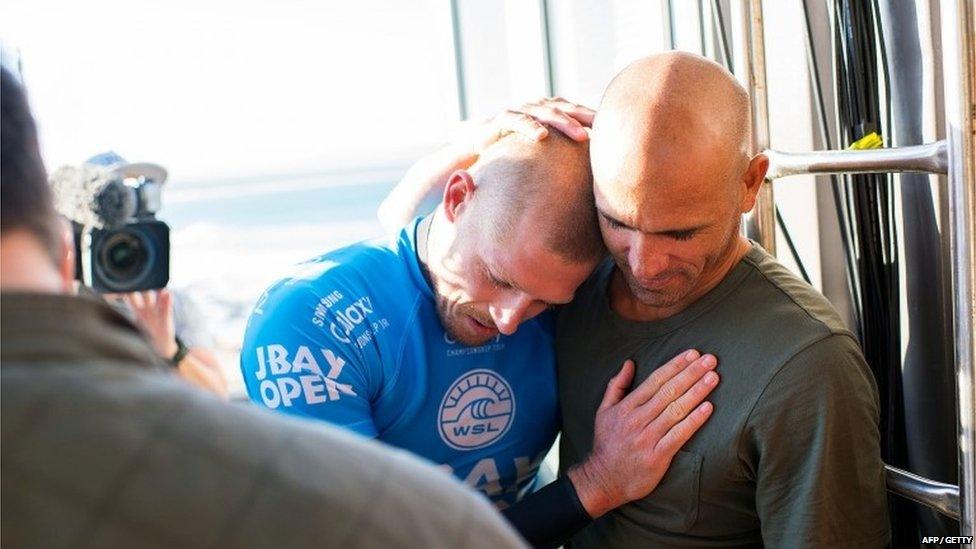
There has not been a shark attack in that area since 2013, said a national safety spokesman
Zig Zag Surfing magazine editor Calvin Bradley witnessed the attack. He said: "When his turn came I saw the shark's fin appear from nowhere.
"Mick disappeared from where we could see him. We were expecting the worst when we saw that it was a shark."
Mr Fanning said he managed to punch the shark in its back and was rescued from the water by people on jet skis.
But experts say shark attacks in South Africa are uncommon.
"The last shark attack that happened in that area was in 2013," said National Sea Rescue Institute (NSRI) spokesman Craig Limbanon.
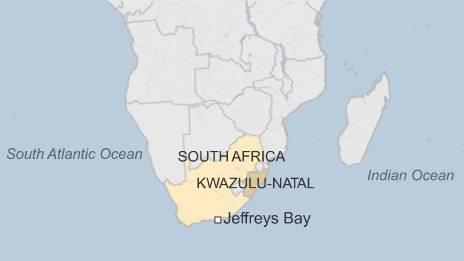
"We assist when there are incidents reported but this is not a common occurrence."
Prior to that, the last recorded attacks were in 2005 and 2011, according to the NSRI.
More than 40 of the country's beaches have repeatedly received blue flag status - an international award which looks at safety of beaches and how they are managed.
While the status of Jeffreys Bay - where Mr Fanning's attack happened - is not clear, it is considered a safe beach.
But Mr Limbanon says unlike other beaches where warnings are clearly visible, the beaches in this small town are not "properly marked".
The rules are that as well as fixed boards, warnings including coloured flags should be visible throughout the beach.
Mr Bradley said: "Surfers know that there are sharks.
"We know that there are risks and it can happen. It is not out of the ordinary.
"There are precautions though. For example, in Cape Town there are shark spotters that look out for any sharks during big contests and anytime.
"If they see a shark they will turn on a siren and call out to surfers and warn them of shark activity."
But he concedes: "I believe more shark spotters are needed in J-Bay."
To net or not to net?
According to Shark Attack Data, a website that monitors shark attacks around the world, there have been 500 incidents in South Africa since the 1900s, most of them unprovoked and not fatal.
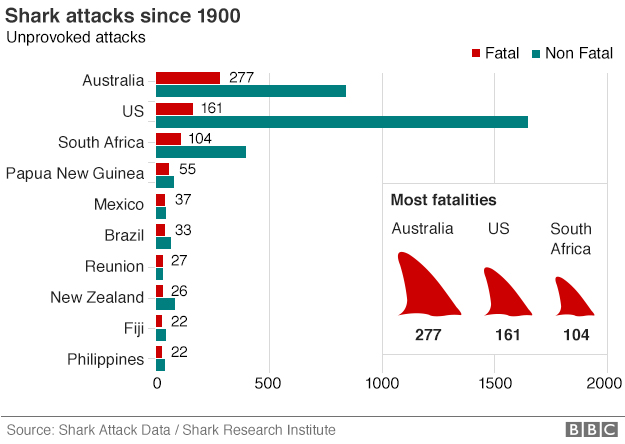
The US and Australia had more than 1,100 incidents over the same period and surfing remains popular in both countries.
South Africa is home to more than 90 shark species, including the Great White.
The province of KwaZulu-Natal has introduced shark nets - large meshes placed several metres below the water to form of barrier between sharks and humans.
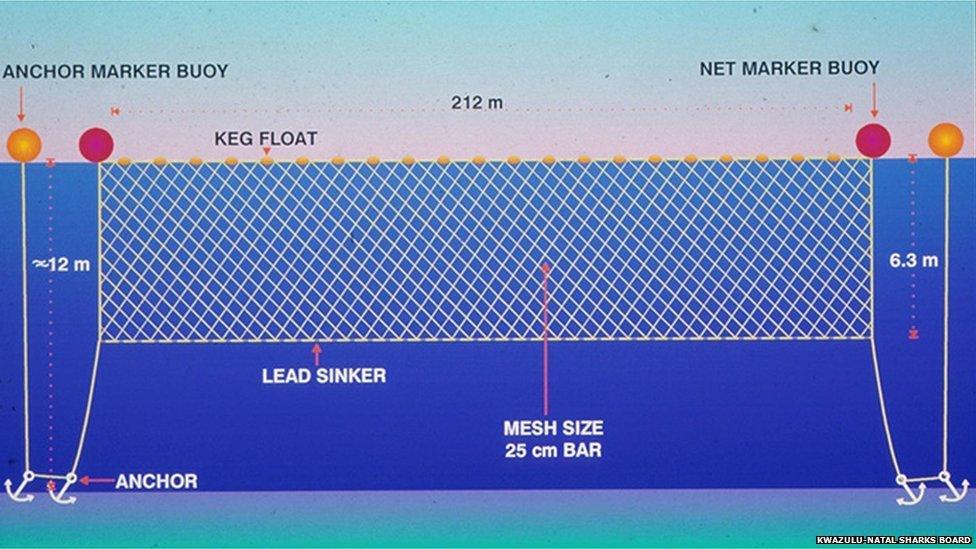
KwaZulu-Natal Sharks Board is tasked with maintaining the safety equipment on 38 beaches.
It says the country's beaches are considered safe by international standards.
However, most of the country's beaches do not have shark nets, so people take this into account when going swimming, surfing, deep-sea fishing and even shark-cage diving - all popular activities here.

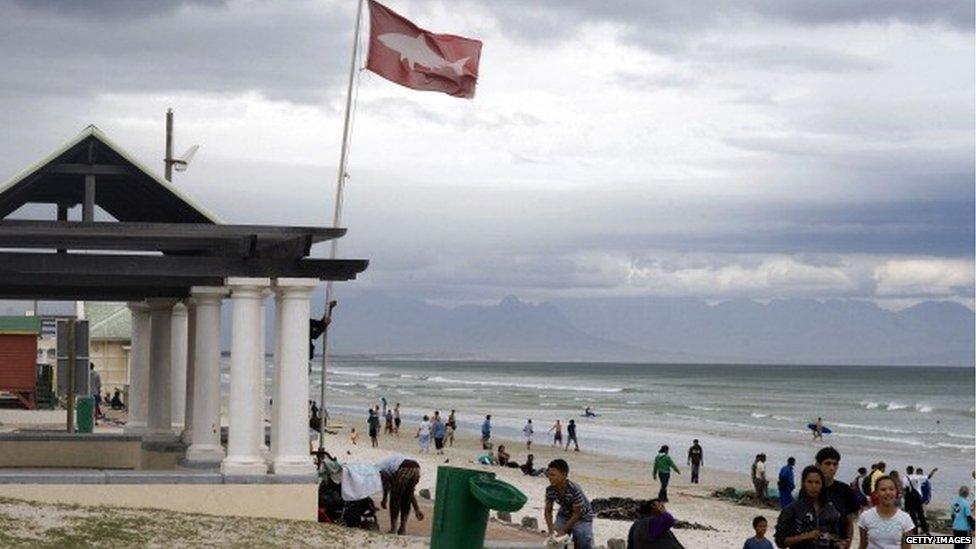
A red flag means a shark has been spotted
What to look out for
Flags are used at popular beaches to warn people of the presence of sharks
•If you see a green flag, it means the water is clear and no sharks have been spotted
•A red flag means that a shark has been spotted on that day, but spotters have lost track of it
•A white flag with a black shark means a shark has been spotted and it is no longer safe to be in the water
•Sirens will sound if a shark is spotted. If you are in the water when this happens, leave the water quickly but calmly
Source: South African Tourism, external

But shark nets are not a popular choice.
Environmentalists say they can pose a danger to the sharks - which sometimes get trapped in the wires. They also require regular maintenance.
Even with all the research done around the world, there is a lot of misinformation about why sharks attack humans but experts says that unlike in the famous Hollywood movie Jaws, shark attacks are not planned or even malicious - they are often chance interactions.
And for surfing magazine editor Mr Bradley that means "it is safe to get into the water but you always need to be careful".
- Published20 July 2015
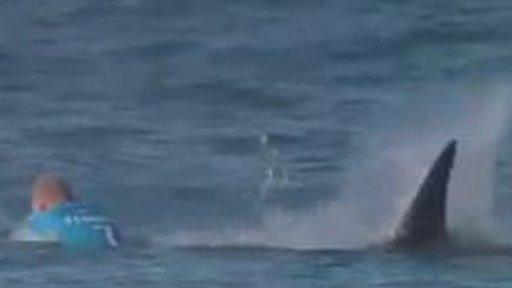
- Published19 July 2015
